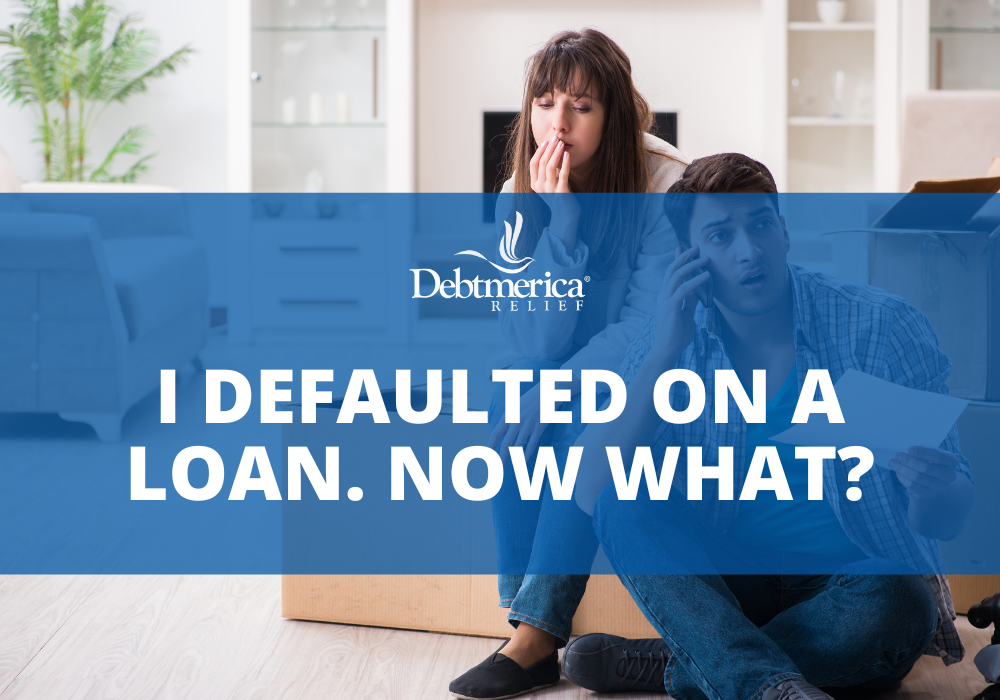I Defaulted on a Loan. Now What?

Defaulting on a loan is a serious financial situation that can have significant consequences for borrowers. Whether it’s a student loan, mortgage, credit card debt, or any other type of loan, failing to meet your financial obligations can lead to a series of adverse repercussions. In this article, we will explore what happens when you default on a loan and the steps lenders typically take to recover their funds.
What Does it Mean to Default on a Loan?
Defaulting on a loan means that a borrower has failed to meet their financial obligations as outlined in the loan agreement. When someone defaults on a loan, they are typically not making the required payments according to the loan’s terms and schedule. The specific conditions for default can vary depending on the type of loan and the lender, but it generally occurs when a borrower misses a certain number of consecutive payments or fails to meet other contractual obligations.
Defaulting on a loan can lead to a series of adverse consequences, including negative impacts on the borrower’s credit score, legal actions by the lender to recover the debt, potential asset seizures or repossessions (in the case of secured loans like mortgages or auto loans), and ongoing financial challenges. It is essential to communicate with the lender if you are facing financial difficulties to explore potential solutions and avoid the serious repercussions of loan default.
Defaulting on Secured Debt vs. Unsecured Debt
Defaulting on secured debt and unsecured debt can lead to different consequences due to the nature of these loans. Here’s a comparison of what typically happens when you default on each type of debt:
Secured Debt
Secured debts are backed by collateral, such as a house (in the case of a mortgage) or a car (in the case of an auto loan). If you default on a secured loan, the lender has the legal right to repossess or seize the collateral associated with the loan. For example, a mortgage lender can initiate foreclosure proceedings to take possession of your home, and an auto lender can repossess your vehicle. Once the lender has possession of the collateral, they may sell it to recover the amount you owe on the loan. If the sale doesn’t cover the entire debt, you may still be responsible for the remaining balance, known as a deficiency.
Defaulting on secured debt has a severe negative impact on your credit score, which can make it challenging to secure new loans or credit in the future. Lenders of secured debt may pursue legal actions to recover their funds or the deficiency after the sale of collateral. This can involve lawsuits, wage garnishment, or bank account seizure.
Unsecured Debt
When you default on unsecured debt, such as credit card debt or personal loans, the lender will typically start by trying to collect the overdue amount through reminders, calls, or collection letters. Late fees and penalties may also be added to the debt. Defaulting on unsecured debt also results in a negative impact on your credit score. The lender may report the late payments and the default to credit bureaus.
If you continue to ignore the lender’s attempts to collect the debt, they may send the debt to a third-party debt collection agency. In some cases, lenders of unsecured debt may choose to take legal action to obtain a court judgment, which could lead to wage garnishment or bank account seizure. However, unsecured debt is typically subject to fewer legal remedies for lenders compared to secured debt. With unsecured debt, it may be possible to negotiate with the lender or the debt collection agency to settle the debt for less than the original amount.
What To Do If You Default on a Loan
Defaulting on a loan is a serious financial situation, but it’s important to take action to address it rather than ignore the issue. Here are steps you should consider taking if you’ve defaulted on a loan:
- Review the Loan Agreement: Carefully review the terms of the loan agreement to understand the lender’s rights and your responsibilities in case of default. This will help you understand the specific consequences you may face.
- Contact the Lender: Communication is key. Reach out to the lender as soon as possible to explain your situation. Discuss the reasons for your default and inquire about potential options to resolve the issue. Some lenders may be willing to work with you by offering temporary payment plans, loan modifications, or forbearance.
- Create a Budget: Assess your financial situation and create a detailed budget. Determine how much you can realistically afford to pay towards the defaulted loan each month. This will help you demonstrate your commitment to resolving the debt and allow you to make informed decisions.
- Negotiate a Settlement: Depending on your financial circumstances, you may be able to negotiate a settlement with the lender. This involves agreeing to pay a portion of the outstanding debt in exchange for the lender forgiving the remaining balance. Be sure to get any settlement agreement in writing.
- Seek Legal or Credit Counseling Help: If you’re struggling to communicate with the lender or are unsure about your rights, consider seeking legal advice or credit counseling. These professionals can help you understand your options and may negotiate on your behalf.
- Rebuild Your Credit: After resolving the defaulted loan, focus on rebuilding your credit. Make on-time payments for all current debts and consider using secured credit cards or small installment loans to demonstrate responsible credit management.
- Check Your Credit Report: Regularly monitor your credit reports to ensure that the default is accurately reported. Dispute any inaccuracies with the credit bureaus if necessary.
- Learn from Your Mistakes: Use the experience as a learning opportunity. Understand what led to the default and take steps to prevent it from happening again. Developing good financial habits can help you avoid future defaults.
- Consider Financial Counseling: If you’re consistently struggling with debt, you may benefit from financial counseling or education. Nonprofit organizations and credit counseling agencies can provide valuable guidance on budgeting and debt management.
Debt Help for Those with Defaulted Loans
Defaulting on a loan is a situation that should be avoided at all costs. It can lead to a series of financial and legal consequences, including damage to your credit score, legal actions, and the potential loss of assets. It’s crucial to communicate with your lender if you’re facing financial difficulties, as they may be willing to work with you to find a solution, such as restructuring the loan or offering a temporary forbearance. Responsible financial management and timely communication with creditors are key to avoiding the devastating consequences of loan default. Debtmerica Relief has over 16 years of experience in providing relief to our clients whose debts have become too much to handle.
If you need help with debt, contact us for a free consultation.



